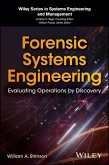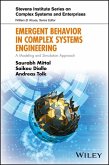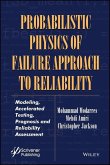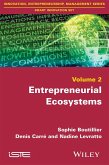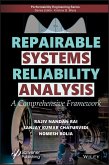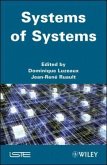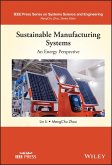

Alle Infos zum eBook verschenken

- Format: ePub
- Merkliste
- Auf die Merkliste
- Bewerten Bewerten
- Teilen
- Produkt teilen
- Produkterinnerung
- Produkterinnerung

Hier können Sie sich einloggen

Bitte loggen Sie sich zunächst in Ihr Kundenkonto ein oder registrieren Sie sich bei bücher.de, um das eBook-Abo tolino select nutzen zu können.
This book aims to present a systemic perspective to energetic transition to a discarbonated society implying an increase of energetic efficiency of current production process, new way of energy production - integration of renewable energies, re-use of wastes. Main societal functions are analyzed in order to highlight the ongoing process of technological and non-technological innovations: transport and mobility, food, building. The purpose of this book is to analyze from a global perspective the energetic innovative system on building and to understand the limits of its development and potential new actions.…mehr
- Geräte: eReader
- mit Kopierschutz
- eBook Hilfe
- Größe: 0.69MB
![Forensic Systems Engineering (eBook, ePUB) Forensic Systems Engineering (eBook, ePUB)]() William A. StimsonForensic Systems Engineering (eBook, ePUB)118,99 €
William A. StimsonForensic Systems Engineering (eBook, ePUB)118,99 €![Emergent Behavior in Complex Systems Engineering (eBook, ePUB) Emergent Behavior in Complex Systems Engineering (eBook, ePUB)]() Saurabh MittalEmergent Behavior in Complex Systems Engineering (eBook, ePUB)113,99 €
Saurabh MittalEmergent Behavior in Complex Systems Engineering (eBook, ePUB)113,99 €![Probabilistic Physics of Failure Approach to Reliability (eBook, ePUB) Probabilistic Physics of Failure Approach to Reliability (eBook, ePUB)]() Mohammad ModarresProbabilistic Physics of Failure Approach to Reliability (eBook, ePUB)177,99 €
Mohammad ModarresProbabilistic Physics of Failure Approach to Reliability (eBook, ePUB)177,99 €![Entrepreneurial Ecosystems (eBook, ePUB) Entrepreneurial Ecosystems (eBook, ePUB)]() Sophie BoutillierEntrepreneurial Ecosystems (eBook, ePUB)139,99 €
Sophie BoutillierEntrepreneurial Ecosystems (eBook, ePUB)139,99 €![Repairable Systems Reliability Analysis (eBook, ePUB) Repairable Systems Reliability Analysis (eBook, ePUB)]() Rajiv Nandan RaiRepairable Systems Reliability Analysis (eBook, ePUB)197,99 €
Rajiv Nandan RaiRepairable Systems Reliability Analysis (eBook, ePUB)197,99 €![Systems of Systems (eBook, ePUB) Systems of Systems (eBook, ePUB)]() Systems of Systems (eBook, ePUB)207,99 €
Systems of Systems (eBook, ePUB)207,99 €![Sustainable Manufacturing Systems (eBook, ePUB) Sustainable Manufacturing Systems (eBook, ePUB)]() Lin LiSustainable Manufacturing Systems (eBook, ePUB)111,99 €
Lin LiSustainable Manufacturing Systems (eBook, ePUB)111,99 €-
-
-
Dieser Download kann aus rechtlichen Gründen nur mit Rechnungsadresse in A, B, BG, CY, CZ, D, DK, EW, E, FIN, F, GR, HR, H, IRL, I, LT, L, LR, M, NL, PL, P, R, S, SLO, SK ausgeliefert werden.
- Produktdetails
- Verlag: John Wiley & Sons
- Seitenzahl: 134
- Erscheinungstermin: 14. Oktober 2016
- Englisch
- ISBN-13: 9781119185796
- Artikelnr.: 46882999
- Verlag: John Wiley & Sons
- Seitenzahl: 134
- Erscheinungstermin: 14. Oktober 2016
- Englisch
- ISBN-13: 9781119185796
- Artikelnr.: 46882999
- Herstellerkennzeichnung Die Herstellerinformationen sind derzeit nicht verfügbar.
Introduction ix
Chapter 1. A Necessary Transition? 1
1.1. Socio-technical systems facing their limits 2
1.1.1. Meeting global demographic pressures 3
1.1.2. Limiting the depletion of natural resources 4
1.1.3. Restrain environmental degradation 5
1.2. An analytical framework under construction: the Transition Studies 7
1.2.1. The emergence of "Transition Studies" 7
1.2.2. The transition as a process of socio-technical systems
transformation 8
1.2.3. A transition supported by a systemic vision of innovation 11
1.3. Eco-innovations: facilitators of the transition? 19
1.3.1. Innovation for the environment 19
1.3.2. New management and innovation practices 22
Chapter 2. Energy Transitions 27
2.1. A socially structuring energy model 29
2.2. Fundamentals and characterization of the current energy system 31
2.2.1. Energy and the energy system 31
2.2.2. From primary energy to final energy 32
2.3. The limits of the current energy system 34
2.3.1. An evolution of the world's energy consumption... 35
2.3.2. ...which shrinks fossil energy reserves... 36
2.3.3. ...and generates local and global environmental damage 38
2.4. Innovation in the energy transition 40
2.4.1. Improving the current system of energy production and adapting
existing technologies to new constraints 41
2.4.2. Producing energy differently from non-carbon resources 43
2.4.3. Using energy differently: electromobility 47
2.4.4. Transition to a radically new energy system: the hydrogen economy
50
2.5. Barriers of the energy transition 55
2.5.1. Market failures 55
2.5.2. Systemic failures 56
Chapter 3. Agro-ecological Transitions 59
3.1. The notion of agro-ecology 60
3.1.1. Towards an ecologically intensive agriculture... 60
3.1.2. ... and a sustainable food regime 61
3.2. The implementation of the agro-ecological transition 61
3.2.1. Changing agricultural production systems 62
3.2.2. Eco-innovations in agribusiness companies: a recent and moderate
development 63
3.2.3. Consumers committed to the environment 65
3.3. Obstacles and levers for the agro-ecological transition 69
3.3.1. Process of locking and unlocking 69
3.3.2. Obstacles to the development of new agricultural practices 71
3.3.3. Blockages on the side of the agri-food sector 77
3.4. The levers for agro-ecological transition: the role of public policies
79
Conclusion 87
Bibliography 91
Index 115
Introduction ix
Chapter 1. A Necessary Transition? 1
1.1. Socio-technical systems facing their limits 2
1.1.1. Meeting global demographic pressures 3
1.1.2. Limiting the depletion of natural resources 4
1.1.3. Restrain environmental degradation 5
1.2. An analytical framework under construction: the Transition Studies 7
1.2.1. The emergence of "Transition Studies" 7
1.2.2. The transition as a process of socio-technical systems
transformation 8
1.2.3. A transition supported by a systemic vision of innovation 11
1.3. Eco-innovations: facilitators of the transition? 19
1.3.1. Innovation for the environment 19
1.3.2. New management and innovation practices 22
Chapter 2. Energy Transitions 27
2.1. A socially structuring energy model 29
2.2. Fundamentals and characterization of the current energy system 31
2.2.1. Energy and the energy system 31
2.2.2. From primary energy to final energy 32
2.3. The limits of the current energy system 34
2.3.1. An evolution of the world's energy consumption... 35
2.3.2. ...which shrinks fossil energy reserves... 36
2.3.3. ...and generates local and global environmental damage 38
2.4. Innovation in the energy transition 40
2.4.1. Improving the current system of energy production and adapting
existing technologies to new constraints 41
2.4.2. Producing energy differently from non-carbon resources 43
2.4.3. Using energy differently: electromobility 47
2.4.4. Transition to a radically new energy system: the hydrogen economy
50
2.5. Barriers of the energy transition 55
2.5.1. Market failures 55
2.5.2. Systemic failures 56
Chapter 3. Agro-ecological Transitions 59
3.1. The notion of agro-ecology 60
3.1.1. Towards an ecologically intensive agriculture... 60
3.1.2. ... and a sustainable food regime 61
3.2. The implementation of the agro-ecological transition 61
3.2.1. Changing agricultural production systems 62
3.2.2. Eco-innovations in agribusiness companies: a recent and moderate
development 63
3.2.3. Consumers committed to the environment 65
3.3. Obstacles and levers for the agro-ecological transition 69
3.3.1. Process of locking and unlocking 69
3.3.2. Obstacles to the development of new agricultural practices 71
3.3.3. Blockages on the side of the agri-food sector 77
3.4. The levers for agro-ecological transition: the role of public policies
79
Conclusion 87
Bibliography 91
Index 115

